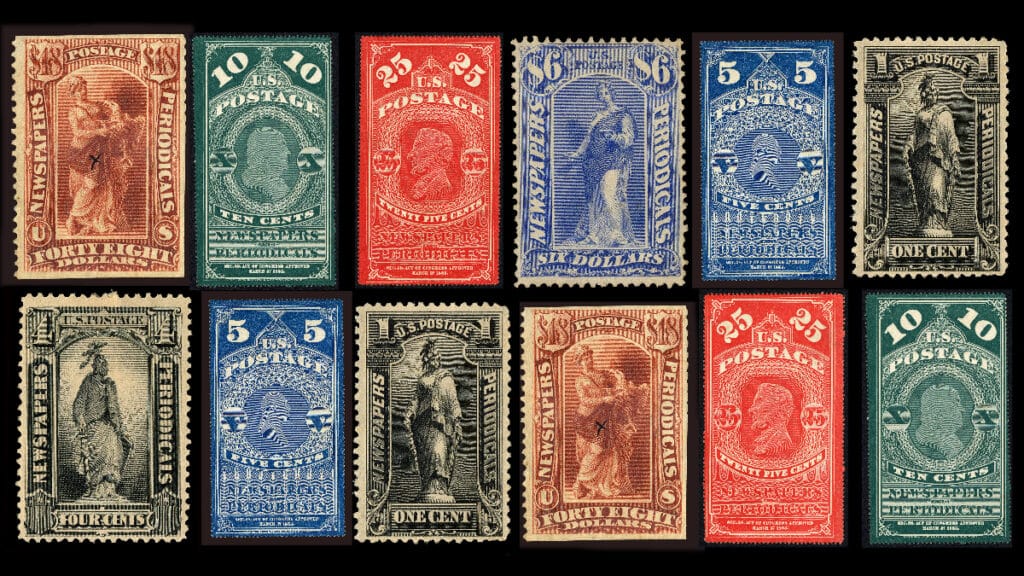Journalism, Platforms, and the Challenges of Public Policy
Charis Papaevangelou / Feb 6, 2023Nearly 6,800 news organizations worldwide received support from Google or Meta between 2017 and early 2022, writes Charis Papaevangelou, a PhD candidate at the University of Toulouse, France, where he is studying the political economy of social media platform regulation.

A vital aspect of a democratic society is a free and independent news media that reports on issues of public concern without hindrance. This responsibility includes holding to account state and corporate power. In recent years, maintaining a healthy news media has proven to be substantially challenging in many parts of the world, with journalism effectively facing an existential crisis. For instance, in the U.S. well-established news brands like Vox Media and the Washington Post have had layoffs, following a trend observed in the tech industry. (Interestingly, news of the latter has gained much more traction, with a website even tracking tech companies’ layoffs.)
It would be quite difficult to list and elaborate on the numerous factors that have contributed to this situation. Journalism has been undergoing a radical transformation, largely, due to the digitalization of our everyday life. Online platforms, from Google’s search engine to Facebook, have been pivotal in this transition. Scholars have come up with a term to describe this phenomenon: platformization. This concept is used to describe how platform companies have altered the production, distribution, and consumption of cultural products, including news and journalism. Platforms are now entangled in even our simplest activities, like keeping up with the news.
Google and Meta, in particular, have created some of the most sophisticated systems for selling and serving advertisements, which has traditionally been the news industry’s most significant source of revenue. According to industry reports, the two tech companies generated $607 billion in advertising revenues between 2018–2021, while the news industry saw a substantial decline that was exacerbated by the global COVID-19 pandemic. The situation is so dire that public authorities and regulators around the globe have started to act against these two companies, accusing them of having become monopolies in the online advertising ecosystem. For instance, in the U.S., the Department of Justice and a group of eight states recently sued Google for anticompetitive practices regarding its advertising services. On the other side of the Atlantic, the European Commission opened an inquiry into Meta’s advertising model to identify whether it has abused a dominant market position.
The duopoly’s capture of a majority of the online advertising ecosystem has crippled news organizations financially, and has made them less resilient and more vulnerable to vested interests, cultivating a situation whereby journalism is becoming more and more dependent on occasional funding initiatives taken by state actors, philanthropists and, more recently, the platform companies themselves. By examining the incentives of such funders, we can peek past their benevolent veneer and scrutinize their agendas. For instance, governments, especially in illiberal countries, might want to keep media coverage in line with state interests through funding schemes. Thus, journalism is increasingly at the risk of becoming captured by such interests, even as news organizations scramble to maintain editorial capacity.
In the last decade, in addition to siphoning advertising revenues, Google and Meta have developed global programs to fund news media organizations. On the one hand, Google began in 2011 with a €60 million fund (approximately $78 million back then) aimed to support French publishers, following a spat with the industry. That initiative evolved into a Europe-wide €150 million fund, dubbed the Digital News Initiative, which ran from 2016 to 2019 (approximately $170 million back then). In 2018, Google moved this program onto the global stage with the Google News Initiative, which has reportedly handed out more than $300 million to thousands of media organizations. Likewise, Meta started funding journalism in 2017 with the launch of its Facebook Journalism Project (now Meta Journalism Project), which also alleges to have distributed more than $300 million to newsrooms around the world.
These developments have caused a power imbalance between platforms and the media. And, the lack of sufficient data concerning these programs and agreements done in light of recent policies (e.g., in France or Australia) is egregious. The fact that money gets funneled into the news industry should not work as a panacea for platforms’ troubling lack of transparency and accountability. To this end, I recently published an article, as part of a collaboration with the Centre for Media, Technology and Democracy, in which I collected and analyzed data from the two aforementioned programs to understand where the money is going, how, and why. Notably, large media organizations were not included in these programs, as they have largely signed their own agreements with platforms. You can find and explore the data here.
In reviewing available public records (like blog posts or project reports) about both companies’ programs, I discovered that nearly 6,800 organizations worldwide received support through at least one of these programs between 2017 and early 2022. While the programs intended to be inclusive, they heavily favored groups in the United States, as well as regions where legislation that would require Google and Meta to reimburse media organizations was being considered (e.g., Brazil). It is worth noting that a bill with similar intent, the Journalism Competition and Preservation Act, was also introduced in Congress in 2022, causing Meta to threaten to remove news content from its services in the U.S. if it came to pass.
The main themes that were prioritized in platforms’ grant calls were three: news deserts, Covid-19, and innovation. So, the platforms framed their grants as remedies to crises, while ensuring that any solution would involve use of their tools and services.
Figure 1 – Geographical distribution of beneficiaries of platforms’ funding programs. C. Papaevangelou
In many cases, these programs involved third parties to assist with their implementation, whom I call “funding intermediaries.” These are essential actors in the news industry, who offer privileged access to platforms through partnerships formed as part of their funding projects. They might distribute grants on behalf of platforms, review grantees’ applications, or receive money from platforms to develop their own funding projects. Overall, I identified 45 of them, ranging from universities to journalism associations.
While it makes sense for platforms to collaborate with industry experts to fund news organizations, my research suggests that it is part of a more elaborate strategy to become embedded in and capture networks that were previously inaccessible to them. This is a reciprocal, interdependent relationship, with platforms relying on funding intermediaries to facilitate their funding activities, while news organizations rely on the money, tools, services, and network capacities provided by platforms. Therefore, it might be that platforms’ strategic decision has not only been to distribute money through opaque mechanisms, but also to target parts of the industry that have been hurt by recurring crises, some of which are aggravated due to the capture of advertising revenues by those same companies.
Some additional key findings from the study include:
- Meta was found to be more transparent about the amounts of money involved in its funding projects by sharing either the total amount pledged to a program or, in some cases, the exact funds allocated to each recipient. However, it did not provide a comprehensive list of its programs and their beneficiaries.
- Google rarely provided financial specificities around its projects, sharing instead total amounts of money provided in a year or for a specific topic. However, it has been more open about who benefitted from its programs; the company releases the GNI’s annual impact report alongside a downloadable list of recipients, albeit with limited information.
- Platforms' spending showed an increase from 2019 onward, with dozens of programs launched in the following years. My data stops in early 2022, making it impossible to draw further results at the moment. But, Meta's recent decision to cut funding for (established) U.S. publishers might hint at a shift in the company's strategy.
At any rate, it would be short-sighted and historically ignorant to blame platforms as the sole reason for journalism’s crisis. But, it would be equally problematic to dismiss concerns about platforms’ power over journalism, which ranges from what kind of content we receive in our news feeds to how they fund newsrooms globally. Policymakers in the US, the EU, Brazil, India, and elsewhere, seem to understand this, and have recently started to propose or pass legislation to rectify market and power asymmetries. Journalists have also begun shifting their approach to public policy, arguing in favor of regulation that would protect a free and vibrant press.
With more and more regulatory initiatives cropping up, it is vital to have as clear a picture of the current situation as possible. Platforms have stubbornly avoided sharing data about many of their activities, their funding projects notwithstanding. This does not only reinforce power asymmetries, even within the news industry, but also hinders policymakers’ capacity to empirically support public policymaking with evidence. As such, among others, any future policy must also ensure meaningful transparency. Regardless, it is positive to see the multifaceted relationship between platforms and the media occupying more space in the public debate. If the previous decade saw journalism become more reliant on platforms, then the current one might see it restoring and reinforcing its autonomy.
Authors
